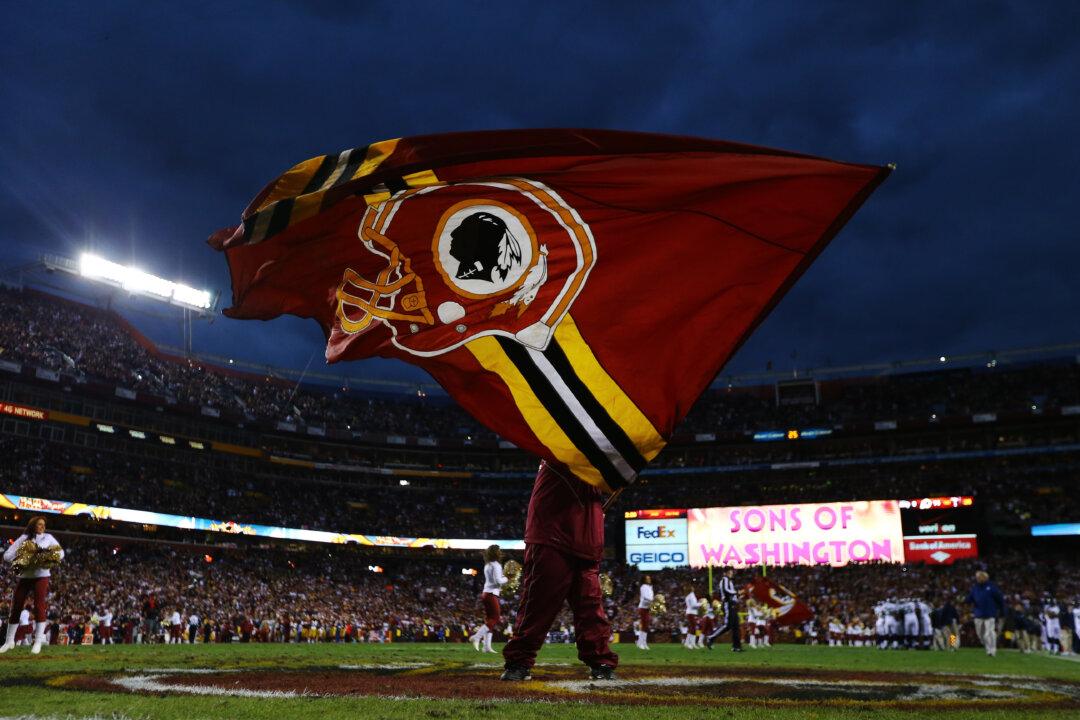Redskins name change: House lawmakers urged Washington Redskins owner Dan Snyder and NFL Commissioner Roger Goodell on Tuesday to change the team’s name.
“Native Americans throughout the country consider the term ‘redskin’ a racial, derogatory slur akin the ‘N-word’ among African Americans or the ‘W-word’ among Latinos,” read a letter sent by nine Democrats and one Republican to Snyder and Goodell, according to MSNBC. “Such offensive epithets would no doubt draw wide-spread disapproval among the NFL’s fan base. Yet the national coverage of Washington’s NFL football team profits from a term that is equally disparaging to Native Americans.”
A Redskins spokesman told USA Today earlier this month that Snyder “will not change the name no matter what.” In the May 9 USA Today broadcast, Native American Amanda Blackhorse, who is lead plaintiff in a lawsuit against the Redskins, said, “You can’t even use the name without going back to the origins of the name.”
The word “redskin” recalls the practice of removing the flesh from the scalps of Native Americans to sell it.
Some fans argue that today the name only recalls the lengthy history and tradition of the football team. “These members of Congress need to stop urging the Redskins for a name change,” Tweeted Zach Hoover on Wednesday.
According to a recent poll cited by USA Today, 80 percent of football fans do not think team names referencing Native Americans must be changed.
In August, 2005, the American Psychological Association (APA) Council of Representatives adopted a resolution calling for the immediate retirement of team mascots and other symbols or images that could be offensive to Native Americans.
“These omnipresent images perpetuate misinformation and stereotypes about American Indians, including the stereotype of the noble savage, the bloodthirsty savage, and that American Indians are a historic race that only exists in past-tense status,” states the APA website. “These stereotypes threaten the psychological functioning of American Indians and remind American Indian communities of the narrow view that society has of them.”





